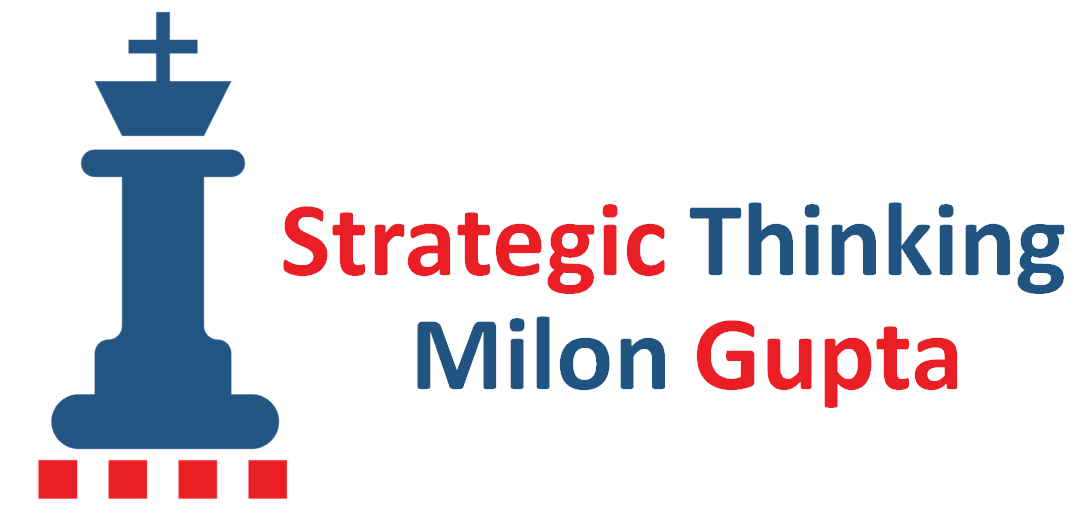Many C-suite and mid-level executives have by now understood and experienced the benefits of business coaching. The range of topics for business coaching is very wide. It includes leadership development, stress management, coping with change, and handling conflicts, to name just a few. One particular branch of business coaching which still requires more explaining is business strategy coaching, which happens to be may own focus.
 Differences between strategy coaching and consulting
Differences between strategy coaching and consulting
When executives hear ‘strategy’ they may think rather about consulting than coaching. However, there is a significant difference between strategy coaching and consulting. Consultants typically collect data, analyze the situation, and present their conclusions and recommendations. A strategy coach doesn’t do any of that and works mainly with the same tools as many other business coaches, including a goal-driven process, mind-opening questions, and enlightening feedback.
Strategy coaching and strategy consulting are in my view not competing but rather complementary. While a number of consultancies include coaching methods in consulting, I recommend to separate coaching and consulting, in order to use their respective strengths and avoid the drawbacks of confusing the roles of coach and consultant. As a coach, I would support the client in finding out their own answers to strategic challenges without providing any advice. As a consultant, I would provide advice based on my expertise.
 Situations when you need support
Situations when you need support
As an experienced executive you may say that you and your leadership team can deal with all strategic challenges completely by yourself and don’t need a strategy coach. While this may be true in some situations, there are other situations, when executives and their companies could benefit from the support of a strategy coach.
The following list of five selected signals gives you an idea when it would make sense to hire a strategy coach.
1. There is no documented and implemented strategy or a structured strategy process.
In some small companies it is not unusual that the strategy only exists in the head of the owner and CEO. Such an implicit strategy may work well for some time. However, as soon as there are significant changes in the market, this could become a problem. Coaching can help executives change their mindset and take concrete steps.
2. Your direct reports only have a vague idea what the company’s strategy is.
Have you ever asked one of your direct reports to tell you what the company’s strategy is? If they cannot tell you, this could have different reasons: they have not paid attention when you explained it to them, or you have not properly explained it to them in the first place. In any case you may have a strategy implementation issue which you could reflect and improve through coaching.
3. The business strategy has not been reviewed for a year or more.
Going once every few years through a serious strategic planning process is not sufficient in today’s fast-changing business environment. The strategy of yesterday may not be suitable anymore for today’s challenges. Coaching can help executives establish a more regular process.
4. Strategy meetings led by you don’t produce new strategic options.
If that is the case, you should ask yourself: why? Have you considered the possibility that you contributed to this? Maybe it is because you dominate the discussion, or because you invite a too homogeneous group of people, or because you don’t push for new options. Coaching could help you in the preparation of the next strategy meeting to become more aware of your role and see how you could change your behavior to get more desired results.
5. The market in your business sector is changing, and you are not sure how to respond.
When new competitors enter the market, or new regulation changes the rules of the game, it is time to review your company’s strategy. If you and the other leaders of your company are hesitating or uncertain how to respond, coaching could be useful to gain some clarity.
There are certainly more triggers that should make executives consider either coaching or consulting. However, if you honestly watch out for any of these five signs, you increase your chances of not missing an opportunity.
Why coaching and not consulting?
Why do I suggest coaching and not right away consulting in these five cases? The reason is that I consider it crucial for executives to first get clarity on the strategic challenges for themselves, based on their own knowledge, before they call in consultants to analyze the situation and develop responses to strategic challenges.
Coaching is useful in the strategy process for opening up new perspectives based on the existing, sometimes hidden knowledge of executives themselves. Once the clarity on available strategic options has increased, it will be easier to define specific tasks in the strategy development or implementation process, where the support of consultants could be useful.
If you are an executive and have experience with either strategy coaching or strategy consulting, I invite you to share it via the comment field below. Contact me, if you would like to know more about business strategy coaching.

Comments are closed.